Access Programme
Projects under the Access Programme are implemented through grants and are designed to create demand and promote usage of ICTs in unserved and underserved communities and groups. The projects involve the provision of end-user devices to complement the telecommunication infrastructure that are deployed under the Connectivity Programme.
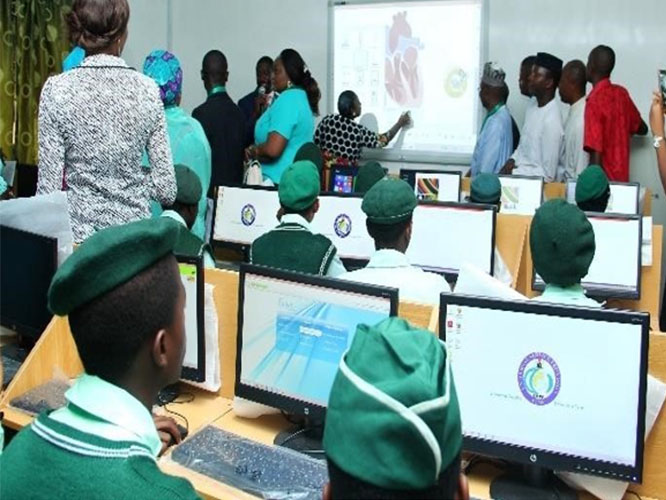
USPF designed the Digital Nigeria Centers (DNC) project to provide a platform for accessing online/offline educational resources and the adoption of ICT as a learning platform in public secondary schools in order to create 21st century skills. The DNC is an avenue to help in the training of students to acquire ICT skills and bridge the digital divide.
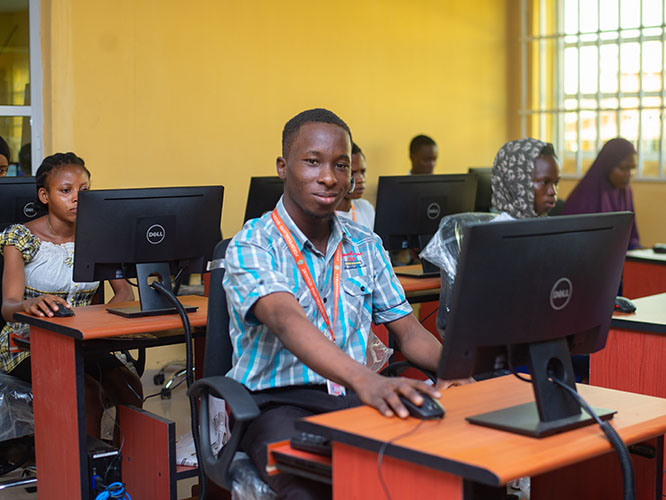
Tertiary Institution Digital Centers (TIDC) Project is one of the initiatives of the Universal Service Provision Fund aimed at facilitating bandwidth connectivity and installation of ICT devices and peripherals in selected tertiary institutions.
The TIDC project will also serve as ICT centre in each selected tertiary institution. The ICT centre will be an avenue for students to acquire and improve their ICT skills e.g. application development and web design etc. This will also give attention to technology startups that could be further trained and mentored to develop technology solutions that will be commercially viable to attract financial growth and create job opportunities for the up-coming generation.
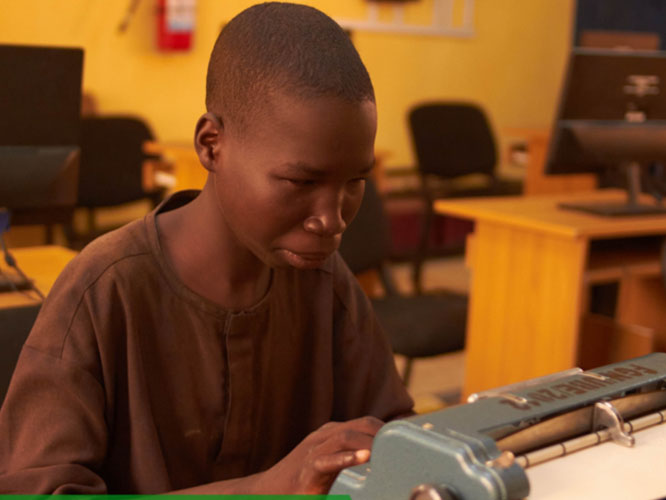
This project is expected to be executed in consultation with the relevant stakeholders. The objective of the project is to provide ICT needs of persons living with disabilities in Nigeria and access to required ICT services through institutions/organisations set up to cater for this group. In this regard, USPF shall make provisions within its budget to support all-inclusive ICT access to people living with disabilities.
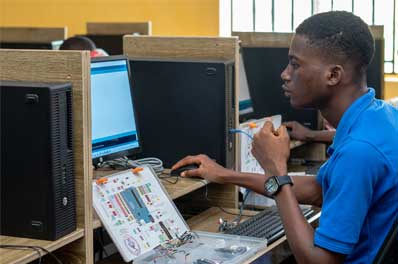
The implementation of the ETC project shall target institutions of learning in rural, unserved, and underserved areas with adequate space to build, and other facilities to accommodate the building and infrastructure to be deployed. The implementer is expected to construct the ETC building, deploy and configure the ICT equipment, provide bandwidth connectivity and emerging technologies software to the beneficiary learning institution.
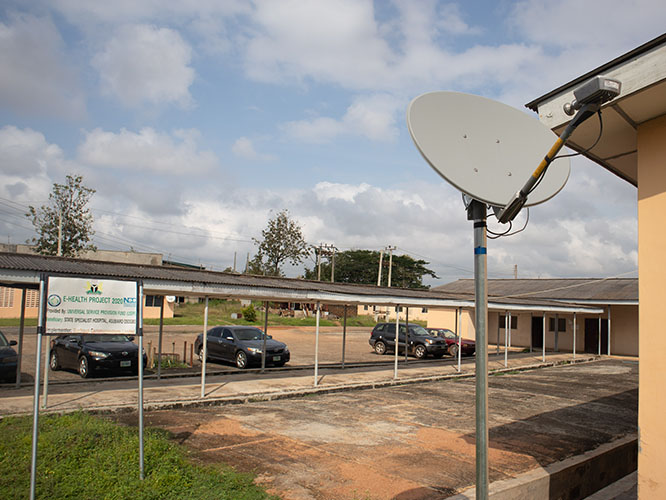
The project is aimed at using Information Communication Technologies (ICT) to improve access to healthcare, raise the quality and reduce cost of health care provision thereby endowing patients in rural communities. It is expected to be executed in alliance with the National Primary Health Development Agency (NPHDA), Primary Health/Public Health Centres in rural, unserved and underserved communities. The project will be designed to provide access to real-time consultancy services between primary health centres/facilities with General Hospitals, Federal Medical Centres and other existing secondary Public Health Centres.
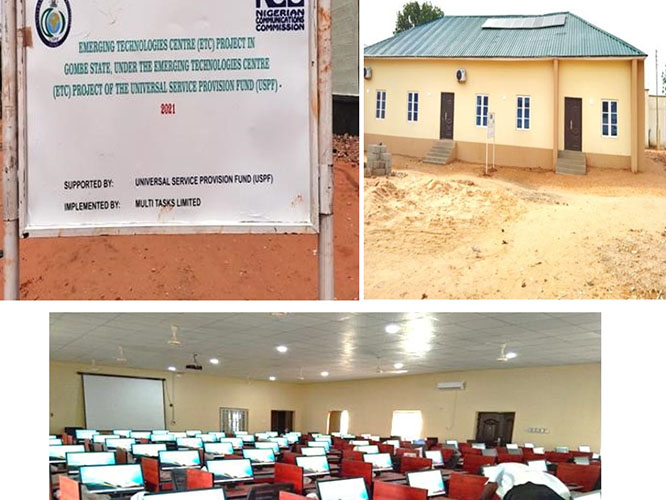
USPF, in partnership with local entrepreneurs and community-based organizations will facilitate the establishment of Community Resource Centres (CRC). The aim is to extend voice, internet and ICT training and other e-services to unserved communities on shared basis and bridge the digital divide in the communities.
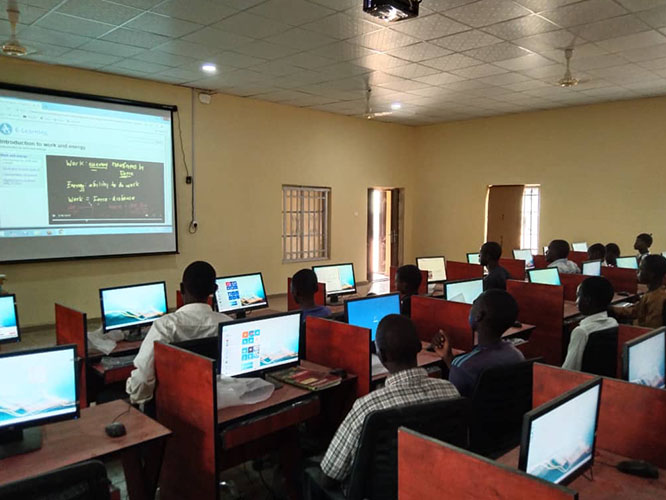
The USPF will support, in line with its mandate local entrepreneurs to develop local applications and content for the internet. The aim is to improve adoption of ICT in everyday activities and bridge the digital divide. The local applications and/or content would be socially and culturally relevant to the communities.
In addition, projects that will support local content hosting platforms will also be implemented.
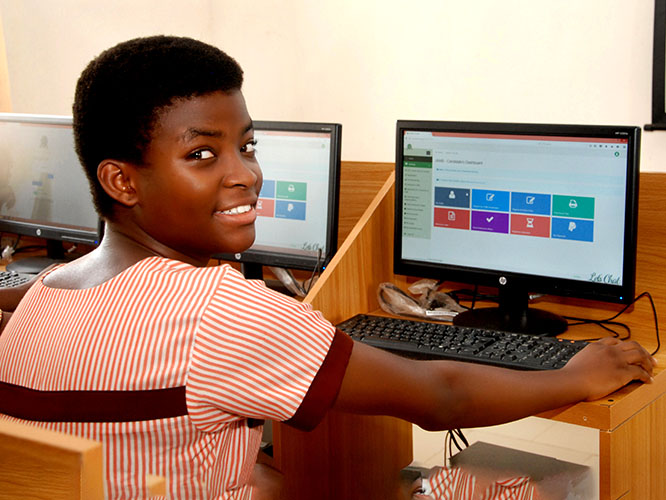
The project is designed to provide platform for online fully cross searchable portal for displaying library documents and educational database to ensure that users have unlimited access to wealth of knowledge, educational materials on wide range of subjects with international standard quality of materials.
It also provides the platform for online portal for library documents and educational database.
Each of the beneficiary libraries are equipped with desktop computers, server systems, UPS, printers, computer furniture, air conditioners, library software, scanner, 60 KVA generator, VSAT equipment with bandwidth.
The objective of the project is to create a platform for online fully cross searchable portal for displaying library documents and educational database to provide users with unlimited access to knowledge resources and educational materials on a wide range of subjects.